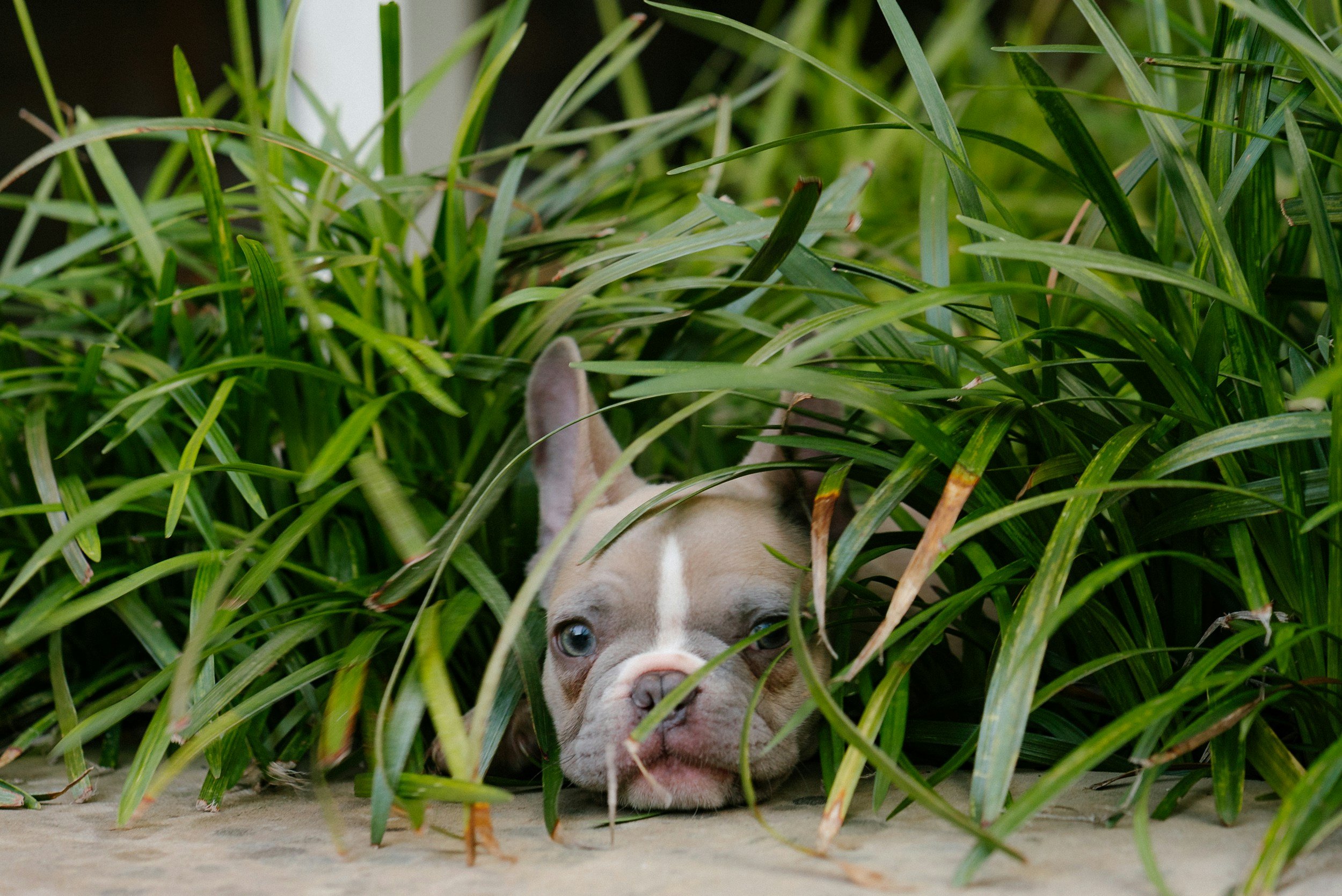
French Bulldog
The French Bulldog, often affectionately called "Frenchie," originated in England in the 1800s as a smaller version of the English Bulldog. These miniature Bulldogs were popular among lace workers in Nottingham, who later moved to France during the Industrial Revolution, bringing their dogs with them. In France, the breed was further developed, particularly in Paris, where it became a favourite among city dwellers and quickly rose to popularity due to its charming and affectionate nature. The French Bulldog is known for its distinctive bat-like ears, compact size, and muscular build. Today, they are beloved companions around the world, known for their adaptability to urban living and their affectionate, playful personalities.
Fun Fact!
Did you know that the French Bulldog's bat ears were once a point of controversy? Early breeders in France preferred the "rose ear," similar to that of the English Bulldog, but American breeders insisted on the distinctive erect "bat ear" we know today. It was this unique feature that helped define the breed's look and contributed to its popularity across the globe!
Overall
French Bulldogs are loving and loyal companions, but they require a dedicated owner who understands their specific needs and potential health challenges.
Essential information
-
Qualities
Great Companions
French Bulldogs are affectionate, loyal, and love being with their owners, making them excellent companions.
Good for Small Spaces
Their small size and moderate exercise needs make them well-suited for apartment living.
Low Grooming Needs
Their short coat is easy to maintain with minimal grooming.
Friendly Temperament
French Bulldogs are generally good with children and other pets, especially when properly socialised.
-
Considerations
Health Issues
French Bulldogs are prone to a variety of health problems, particularly related to their breathing due to their flat faces.
Separation Anxiety
They do not do well when left alone for long periods and can develop separation anxiety.
Sensitive to Temperature Extreme
They are vulnerable to heat and cold, requiring a stable indoor environment.
Costly to Maintain
Their health issues can lead to expensive vet bills, and their initial purchase cost is also high.
-
Exercise & Training
Exercise Needs
French Bulldogs have moderate exercise needs. They enjoy short walks and playtime but do not require intense exercise.
Walks
Two short walks per day are usually sufficient.
Training
They are relatively easy to train but can be stubborn. Positive reinforcement works best.
-
Cost
Purchase Price
$4,000 - $8,000 AUD depending on breeder and bloodline.
Initial Setup
Around $500 AUD. (crate, bed, toys, etc.)
Food
Approximately $700 - $1,000 AUD per year.
Grooming
Minimal grooming costs; typically $50 - $100 AUD per year for occasional baths or professional grooming.
Vet Bills
Initial vaccinations, microchipping, and desexing can cost around $500 - $1,000 AUD. Ongoing costs, including annual check-ups, could be around $300 - $500 AUD per year. Keep in mind the potential for costly surgeries if health issues arise.
Total Lifetime Cost
Over a 10-12 year lifespan, the total cost of ownership can range from $20,000 - $40,000 AUD.
-
Characteristics
Size and Weight
French Bulldogs typically stand about 30-33 cm (11-13 inches) tall and weigh between 9-14 kg (20-31 lbs).
Coat
They have a short, smooth coat that is easy to maintain but does shed moderately throughout the year.
Colour Options
Common colours include fawn, cream, brindle, and combinations of these. They may also have markings like white patches or a black mask.
Temperament
French Bulldogs are known for being affectionate, playful, and intelligent. They are great companion dogs and love being around people.
Good with Children
They are generally good with children of all ages, but supervision is recommended with younger children due to the dog's small size.
Socialisation
French Bulldogs are typically good with other dogs, especially if socialised early. They are usually friendly at dog parks but can be a bit reserved around larger dogs.
-
Living Environment Suitability
Indoors vs. Outdoors
French Bulldogs are best suited to indoor living due to their sensitivity to extreme temperatures and breathing difficulties.
Apartment Living
They adapt well to apartments and do not require a large outdoor space. However, regular walks and playtime are necessary.
Time Alone
French Bulldogs do not do well if left alone for long periods. They are prone to separation anxiety, so they are best suited for households where someone is often home.
-
Healthcare
Common Health Issues
French Bulldogs are prone to several health problems, including brachycephalic syndrome (breathing issues due to their short nose), hip dysplasia, allergies, skin problems, and spinal disorders. Regular vet check-ups are essential.
-
Additional info
Guarding Ability
French Bulldogs are not guard dogs; they may bark to alert but are generally friendly with strangers.
Affectionate Nature
They are affectionate with both adults and children and thrive on human interaction.
Suitability for Dog Parks
They can get along with dogs of all sizes, but supervision is advised, especially with larger dogs due to their small size and potential breathing issues.
Climate Sensitivity
Due to their brachycephalic nature, French Bulldogs are sensitive to heat and cold. It's important to keep them in a controlled environment to avoid respiratory distress.
Legal and Ethical Considerations:
Ensure you purchase from a reputable breeder who follows ethical breeding practices to minimise health issues associated with poor breeding standards.









